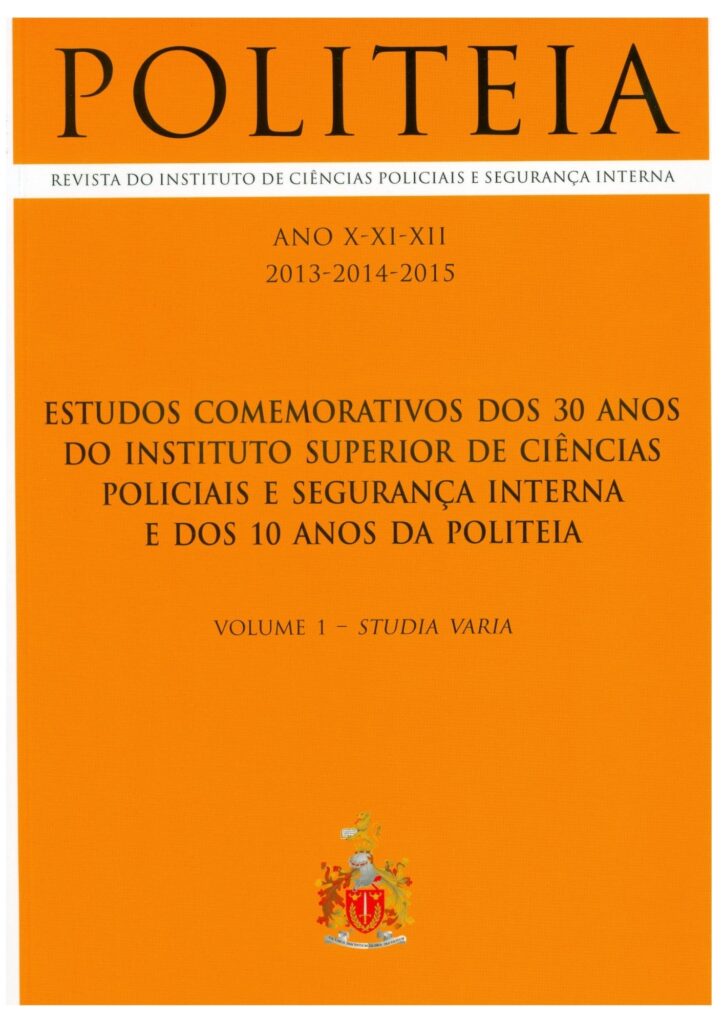A dupla perspetiva da norma fundamental em Hans Kelsen
Palavras chave:
Com a finalidade de afirmar o Direito como ciência e assim o afastar da Sociologia do Direito e do Direito Natural, Hans Kelsen concebeu a Teoria Pura do Direito, que se assume como “Pura” porquanto suportada na absoluta cissão entre o ser e o dever ser. O Direito, sendo uma ciência das normas e dos sistemas normativos, não encontra o seu estribo fundamental nos factos: nenhum facto legitima a existência de normas, estas encontram a sua validade na conformidade com outra norma superior que a legitima. Para encerrar e, deste modo, validar e conhecer o sistema escalonado de atribuição de competências que assim necessariamente se gera, a grundnorm ordena a obediência à primeira constituição historicamente considerada e, bem assim, às posteriores que resultarem de alterações à ordem constitucional (sentido jurídico dos factos). A sua dupla fundamentação filosófica (hipótese lógico- -transcendental e ficção jurídica) e as funções que lhe são inerentes (epistemológica e sistémica) levam-nos a considerar que Hans Kelsen entendeu a norma fundamental em duas diferentes dimensões.
With the purpose of affirming Law as a science and consequently excluding it from the Sociology of Law and Natural Law, Hans kelsen conceived the Pure Theory of Law that is assumed as “Pure” while based on the absolute division between “to be” and “should be”. Law, being a science of norms and of normative systems, cannot find its fundamental pillar in facts: No fact legitimizes the existence of norms; these find their validity in the conformity with other higher norm which legitimizes it. To end and thereby validate and know the graduated system of powers assignment generated this way, the grundnorm. The grundnorm orders obedience to the first historically considered Constitution, as well as to the subsequent constitutions resulting from amendments to the constitutional order (legal sense of the facts). His double philosophical reasoning (logical and transcendental hypothesis and legal fiction) and its inherent (systemic and epistemological) functions lead us to think that Hans kelsen understood the fundamental norm in two different dimensions.
Versão original
Versão original
Outros artigos nesta edição
-
Editorial
Manuel Monteiro Guedes Valente
-
O futuro numa década: Os desafios económicos e securitários de Portugal
Sónia M. A. Morgado e Sérgio Mendes
-
A Cidade do Rio de Janeiro e a Segurança – Os Jogos Olímpicos de 2016
Maria de Fátima Magalhães da Rocha
-
Revolucionar ou Reajustar a Segurança Privada: Alterações e crítica à Lei n.º 34/2013, de 16 de Maio
David Marcos Borralho Pereira
-
Clarificando o Conceito de Segurança
Luís Filipe Jorge de Almeida Guerra
-
Invasões Biológicas e Segurança: uma frente descurada? Bio invasions and Security: a neglected front?
Jorge Fonseca de Almeida
-
Os Serviços de Informações: Actividade, Organização, Poder e Controlo
Hélder Valente Dias
-
A radicalização salafista-jihadista na Europa: o caso dos imigrantes de segunda e terceira geração conectados com o Islão
Marina Soares
-
A dupla perspetiva da norma fundamental em Hans Kelsen
José Joaquim Monteiro Ramos
-
Regime jurídico do correio eletrónico: dos momentos do correio eletrónico…à consagração de uma proteção jurídica uniforme pela Lei do Cibercrime
Nuno Ricardo Pica dos Santos
-
Fórmula Típica do Artigo 241-C do ECA Cibernético: ecos do Direito Penal do Inimigo?
Stenio Santos Sousa
-
O Princípio da Liberdade – Princípio da Legalidade da Detenção nos Tribunais Internacionais
Maria João Simões Escudeiro
-
Produtos Explosivos: Procedimentos e Notas Jurídico-Policiais
Francisco António Carrilho Bagina
-
Direito à Proteção Familiar
Alberto Peixoto
-
A Responsabilidade Social das Empresas em Tempos de Crise. Milton Friedman Revisitado
Maria Augusta Teles
-
Stresse e Burnout em Agentes da Polícia de Segurança Pública
Nuno Russo
-
Revisitando a Galeria de Criminosos Célebres em Portugal. História da Criminologia Contemporânea (1896-1908)
Nuno Caetano Lopes de Barros Poiares




